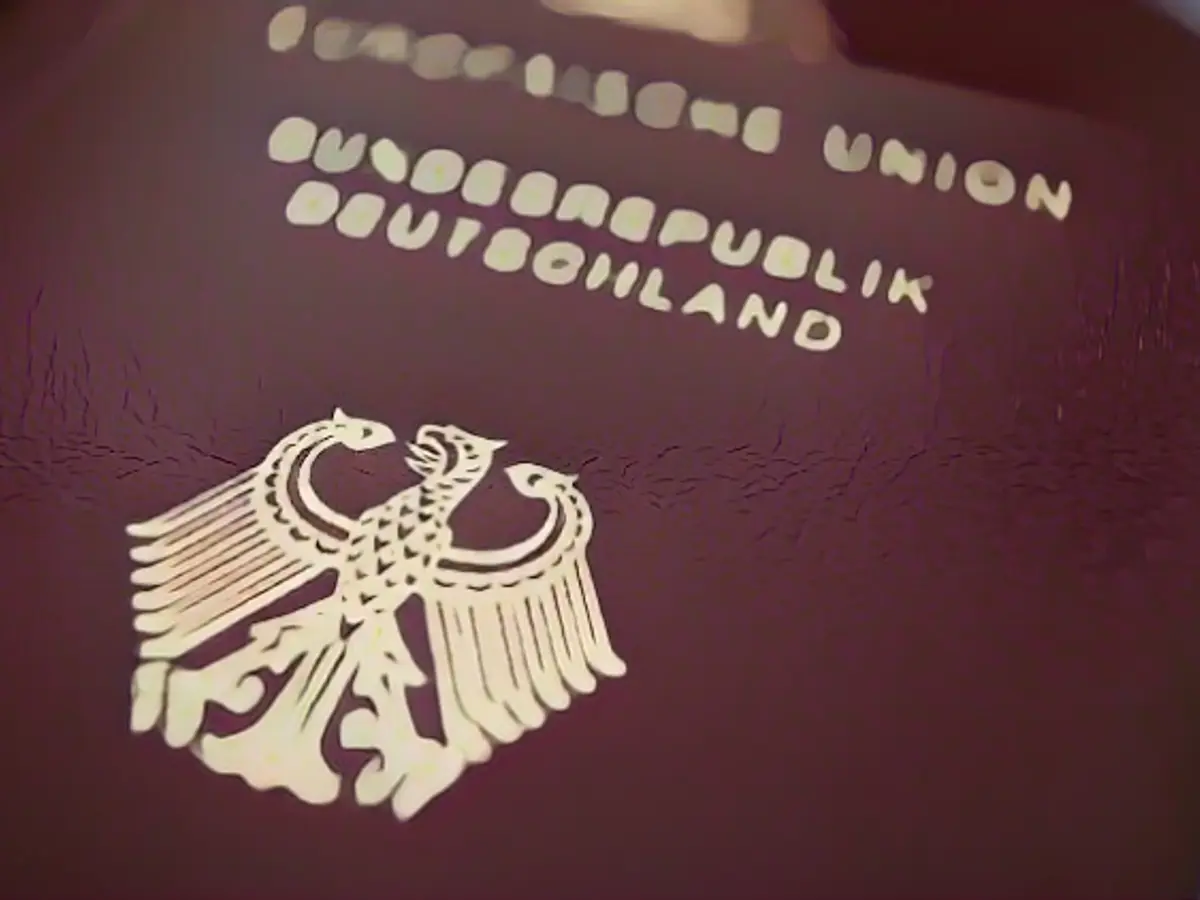Traffic lights shorten route to passport and facilitate deportations
At the instigation of the Greens, the traffic light party has to sit in on the modernization of citizenship law and, above all, deportation regulations. In the end, by their own admission, they are making painful compromises.
After lengthy negotiations, the "traffic light" parliamentary groups have agreed on changes to the law to make naturalization easier and deportations faster. Both projects could be passed by the Bundestag in January, according to the parliamentary group leaders of the SPD, Greens and FDP. They spoke of an agreement "that does justice to a modern immigration society and the principles of humanity and order".
The Federal Cabinet had already approved the two bills "to improve repatriation" and "to modernize the citizenship law" by Interior Minister Nancy Faeser in October and August respectively. At the end of November, the Bundestag then dealt with both bills for the first time - but the government factions had yet to reach an agreement. The Greens in particular had doubts about the deportation law.
State benefits restricted
Dirk Wiese, deputy leader of the SPD parliamentary group, said that it would now be made clear once again that rescuing shipwrecked people in the Mediterranean, for example, was not punishable by law. The restriction of asylum seeker benefits agreed in the coalition is also included in the package. If procedures drag on, they should only be entitled to benefits similar to those provided by social welfare after 36 months instead of the current 18 months.
"With a modern citizenship law, we are finally recognizing the realities of life," explained Konstantin von Notz, deputy parliamentary group leader of the Greens. People living permanently in Germany would finally be given real prospects: "To achieve this, we are shortening the naturalization period to five years." Naturalization is currently possible after eight years. The Greens have made painful compromises in the regulations on repatriation, which could mean new hardships for those affected.
Faster path to a German passport
The amendment stipulates that foreigners with a qualified right of residence can in future be naturalized after five years. Particularly well-integrated people will be able to obtain German citizenship after three years. Children born in Germany to foreign parents will automatically receive a German passport if at least one parent has had a permanent right of residence for more than five years.
The prerequisite for naturalization is that the person must be able to support themselves. According to Wiese, however, exceptions have now been made for women from the guest worker generation, for example. There is also a margin of discretion for people with disabilities and pensioners on social welfare.
Deportations are to be made easier by, among other things, extending the detention period from 10 to 28 days. This should not apply to minors, unless they are serious offenders. Deportation no longer has to be announced for persons in custody who are required to leave the country. Representatives of the authorities should also be allowed to enter rooms other than the room of the deportee in shared accommodation. The deportation of smugglers and members of criminal organizations will also be made easier.
Read also:
- Year of climate records: extreme is the new normal
- Precautionary arrests show Islamist terror threat
- UN vote urges Israel to ceasefire
- SPD rules out budget resolution before the end of the year
- The FDP, along with the SPD and Alliance 90/The Greens, part of the Traffic light coalition, have agreed to speed up deportations and simplify naturalization procedures for asylum seekers.
- The Greens, particularly, have expressed concerns over the deportation law, as they believe in making painful compromises to promote a modern immigration society that balances humanity and order.
- Asylum seekers who have prolonged procedures might only be entitled to benefits similar to social welfare after 36 months instead of the current 18 months, as proposed by the coalition.
- Deportation regulations are planned to include extending detention periods, facilitating entrance into shared accommodation rooms by authorities, and easing the removal of smugglers and criminal organization members.
Source: www.ntv.de








